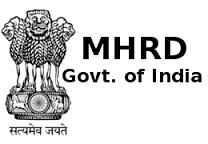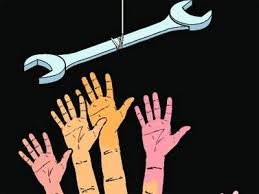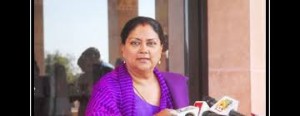 Successive governments since Independence have vowed in the name of minority education and their educational institutions, but little meets the eye. K S Narayanan delves deeper into the ticklish issue
Successive governments since Independence have vowed in the name of minority education and their educational institutions, but little meets the eye. K S Narayanan delves deeper into the ticklish issue
Illconceived notions and stereotyping communities have been age-old traits of our society. People often take undue pride in such prejudices and thus abet spreading canards. Vested interests have often held different minority communities and their affairs to ransom through overt and covert means. One of such favourite targets remain the minority educational institutions, and it is commonplace to see belittling comments about those, both in social gatherings and now the all-pervasive social media.
However, a closer look at the contribution of minority educational in- stitutions across the country only attests their deep sense of engagement in spreading the light of literacy towards promoting equality and empowerment in the post-Independence India. A significant nation-building process cannot be forgotten despite hoarse prime-time debates on 24×7 news channels every now and then.
Unfortunately, the media focus in terms of covering minority communities is limited to the events and politics surrounding victimisation, persecution or communal flare-ups, and seldom highlights the positives like the significant role played by their educational institutions. As per the 2001 census, the major minorities in India include Muslims (14 per cent), Christians (2.34 per cent), Sikhs (1.86 per cent), Buddhists (0.77 per cent), Jains (0.41 per cent) and Parsis (negligible). The census put the overall percentage of religious minorities in the country at around 18.4 per cent of the total population.
Understanding that illiteracy is one of the major contributors to poverty in any socio-religious community is no rocket science. The literacy rate of Muslim females is only 50.1 per cent, which is significantly lower than all other minorities and the national average for all religious communities in India. According to the 2001 Census, total literacy rates of Hindus stood at 65.1 per cent, Muslims 59.1 per cent, Christians 80.3 per cent, Sikhs 69.4 per cent, Buddhists 72.7 per cent and for others it is 47 per cent. Since the community-wise data of literacy segregated on the basis of religion has not been released for the 2011 census, we have to depend on the 2001 census data.
The overall level of literacy of the country has increased from 61 per cent in 2001 to 74 per cent in 2011, the latest census data shows. It is, however, disappointing that states with a large population of Muslims such as UP, Bihar, West Bengal and Assam still continue to lag behind other states like Kerala, Tamil Nadu, Himachal Pradesh, Uttarakhand and Maharashtra in terms of literacy. Even though compared to the overall population of the country, a higher per centage of the Muslim population lives in urban areas, their participation in education continues to be much lower than the general population.
There are many individual success stories that exist among all minority communities, including Muslims, the largest minority. But, it is they who are still well below the national average in terms of income, education and levels of influence in society. Acknowledging this, a committee under the chair- manship of Justice Rajinder Sachar was constituted to look into the social, economic and educational status of the Muslim community in India and sug- gest solutions.
According to findings of the report, submitted in November 2006, a fourth of Muslim children in the age group of 6-14 years have either never attended school or are drop-outs. For children above the age of 17 years, the educational attainment at matriculation level is 17 per cent as against the national average of 26 per cent. Only 50 per cent of Muslims, who complete middle school, are likely to complete secondary education, compared to 62 per cent at national level. The report has also drawn attention to the low levels of educational attainment among Muslim women, Muslims in rural areas as well as in technical and higher education.
“A closer look at the contribution of minority educational institutions across the country only attests their deep sense of engagement in spreading the light of literacy towards promoting equality and empowerment in the post-Independence India”
This was probably the first attempt to analyse the condition of the Muslim community using large-scale empirical data. It clearly brought to fore the relative deprivation of Muslims in India in various dimensions including employment and education. Similarly, an analysis of patterns and trends by Rakesh Basant, Professor of Economics, Indian Institute of Management, Ahmedabad,points to the relatively low levels of participation of Muslims in the education space despite seeing an improvement in recent years. The situation in urban areas, however, remains poor especially for Muslim males. “The community does not fully appreciate the rewards of education even as returns to education are high and household endowments along with location play a critical role in determining the participation of Muslims in education,” the analysis read.
In this backdrop, digital Learning profiled some of the leading minority educational institutions across the country, especially those run by the Muslim community, and found that stakeholders including the community, government, legislature, civil society and the corporate sector, are doing their bit to improve the educational status of minorities.
“While the realisation of “educating a woman is educating a generation” may exist in some quarters of society, the translation of this idea into action has been largely missing”
Set up in 2004, the National Commission for Minority Educational Institutions (NCMEI) has the mandate to safeguard the educational rights of the minorities in India. “We have issued approximately 10,000 minority status certificates to minority educational institutions. We have also made certain recommendations to the state governments concerned for safeguarding the educational rights of minority guaranteed under the Constitution. Some of the state governments have assured us that orders passed by this Commission shall be implemented,” NCMEI chairperson MSA Siddiqui said when asked how successful the Commission has been in achieving its objective. “This Commission has created confidence among minorities about protection of their constitutional rights,” he added.
Over the decades, successive governments have taken steps to improve the ecosystem for improving the educational status of the minority community. The UPA Government also initiated steps to improve the socioeconomic and educational status of minority communities in the country through the Prime Minister’s New 15 Point Programme for the Welfare of Minorities. This was an overarching pro- gramme that covered various schemes and initiatives of different ministries and departments by either earmarking 15 per cent of targets and outlays for the minorities or through specific monitoring of flow of benefits to minorities or areas with substantial minority population.
The incumbent NDA government is also stepping up its efforts. Reacting to the BJP-led government’s projects for a skilled India, Sayyid Ibrahimul Khalilul Bukhari, founder of Ma’din Academy located at Mallapuram in Kerala, said that the government’s allocation of Rs 100 crore for modernisation of Madrasas is a welcome move. “We expect that the educational development activities will be more inclusive and accountable in the Modi government,” he added.
Presenting the Union budget for 2014-15, Finance minister Arun Jaitley assured funds for minority welfare. Allocations for various minority-related schemes under four Union ministries — Home, HRD, Civil Aviation and External Affairs — have also been jacked up by 15.17 per cent from ` 4,049.73 crore in 2013-14 to ` 4,669.29 crore in this year’s budget.
Leaders in the field of education for minority communities across the country, however, want the government to allocate more funds for minority education, set up quality institutes, implement policies and schemes timely, and undertake disbursal of scholarships and bank loans. Dr M A Khatkhatay, General Secretary and a founder member of Modern Educational Social and Cultural Organisation (MESCO), Mumbai, called for a concerted and multifaceted impetus to the minorities. “The government should publicise various welfare schemes. More importantly, all welfare schemes of the central government should be time-bound. This entails a process where any application of grant-in-aid should be sanctioned or rejected within six months after the date of submission. Funds sanctioned under central schemes should be directly transferred to the NGOs’ account, like the scheme of cash in lieu of subsidy through Aadhaar card,” he said.
There is a growing feeling in the minority communities that in order to ensure these measures, they should be made part of the decision-making process and have a greater say in government bodies in the education sector. Abdur Rahaman Ansary, General Secretary of All Bengal Federation of Minorities’ Educational Institutions, wants a central board of minority educational institutions, an autonomous body that provides, promotes, assists and grants recognition to minority educational institutions from the elementary to college levels. Bukhari further called for setting up of more educational institutions and realisation of more infrastructural development in areas which are socially and educationally backward, especially in eastern and northern India.
“There is a growing feeling in the minority communities that they be made part of the decision-making process and have a greater say in government bodies in the education sector”
Educating a woman is educating a generation. While this realisation may exist in some quarters of society, the translation of this idea into action has been largely missing. In order to study the low rate of literacy among Muslim females (at 50.1 per cent), the NCMEI constituted a committee on girls education under Dr Shabistan Ghaffar. According to her, there are several challenges and issues related to girls’ education. “When we talk to parents, we find that they are very hesitant in sending their girls to schools because of several reasons, including lack of female teachers and unavailability of toilets,” she pointed out. The committee has given more than 30 recommendations to the government.
Community sensitisation has been among the major challenges identified by the NCMEI’s Committee on Girls Education. The role of civil society in the process of community development is increasing with the passage of time, and the central and state governments are allocating huge funds in the social sector. However, there is a dearth of non-government organisations working exclusively among Muslims and Buddhist communities. Moreover, most of the NGOs working with a genuine intent and drive lack due capacity in terms of information, training, documentation and resource management.
While the approach of stakeholders towards improving education for minority communities is positive, the pace definitely needs to gather some momentum. It is important to realise that minorities in India are a major section of the contemporary India. It is in their success that the success of India lies.
While HRD minister Smriti Zubin Irani’s announcement of devising a new education policy should address these and several other issues, the Narendra Modi-led NDA government, which has come to power riding the plank of development, should also look at edu- cating and skilling all sec- tions of society for ‘better days’ for a truly inclusive India.








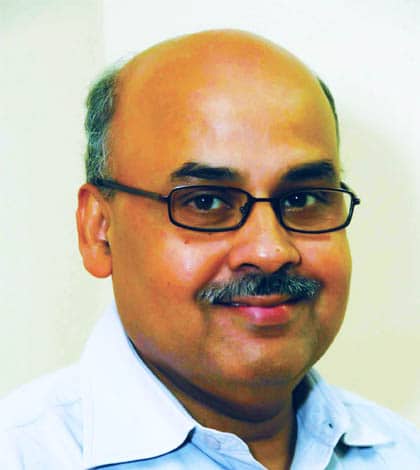
 The open school concept works on the principle of education anytime, anywhere and for anybody and is fast emerging as the alternative mechanism for developing a literate India, says Dr S S Jena, Chairman of the National Institute of Open Schooling in conversation with ENN
The open school concept works on the principle of education anytime, anywhere and for anybody and is fast emerging as the alternative mechanism for developing a literate India, says Dr S S Jena, Chairman of the National Institute of Open Schooling in conversation with ENN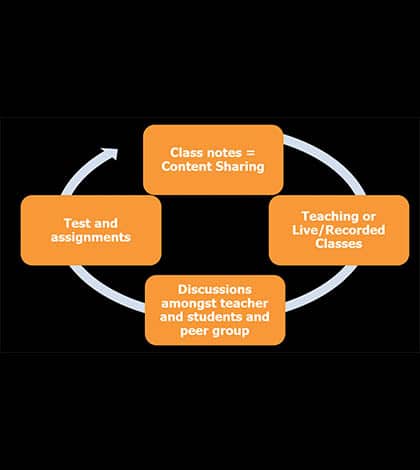

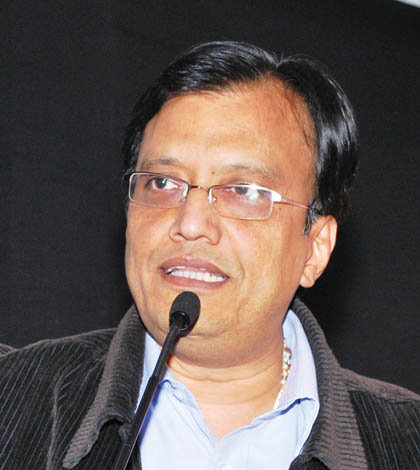
 A regulator needs to constantly evolve, says AICTE Chairman Dr S S Mantha. In an interview to K S Narayanan of Elets News Network, Dr Mantha asserts that the AICTE is here to stay – to protect vulnerable people from being exploited and to facilitate those doing good work
A regulator needs to constantly evolve, says AICTE Chairman Dr S S Mantha. In an interview to K S Narayanan of Elets News Network, Dr Mantha asserts that the AICTE is here to stay – to protect vulnerable people from being exploited and to facilitate those doing good work
 ICT interventions are
ICT interventions are 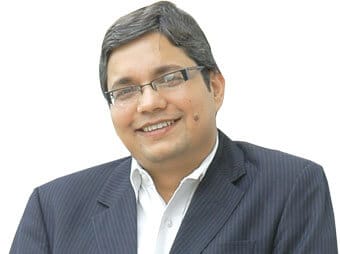
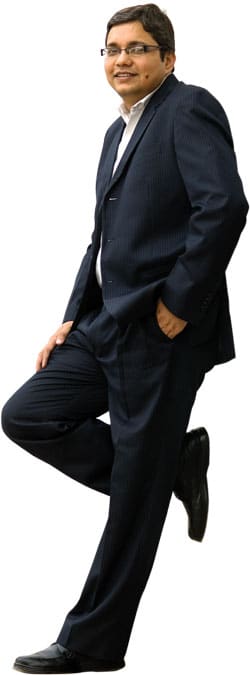 Despite a decade of high economic growth, India tops the list of countries in the United Nation’s Millennium Development Report with the largest share of global extreme poor. No doubt, this calls for an intense fight against poverty, infant and maternal deaths and the open defecation practice. Equally distressing is another recent report by the UN that puts India at the 135th rank in the Human Development Index, much below the top 100 performers. These issues have always haunted us since the Independence, thanks to numerous wrong decisions taken by the policy makers.
Despite a decade of high economic growth, India tops the list of countries in the United Nation’s Millennium Development Report with the largest share of global extreme poor. No doubt, this calls for an intense fight against poverty, infant and maternal deaths and the open defecation practice. Equally distressing is another recent report by the UN that puts India at the 135th rank in the Human Development Index, much below the top 100 performers. These issues have always haunted us since the Independence, thanks to numerous wrong decisions taken by the policy makers.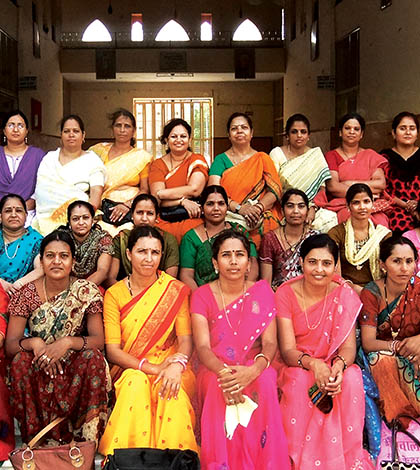
 From a long period of immense struggle to being on the forefront of challenging educational and social backwardness in the Marwar region of Rajasthan, the story of the Marwar Muslim Educational & Welfare Society is one of perseverance and inspiration
From a long period of immense struggle to being on the forefront of challenging educational and social backwardness in the Marwar region of Rajasthan, the story of the Marwar Muslim Educational & Welfare Society is one of perseverance and inspiration

